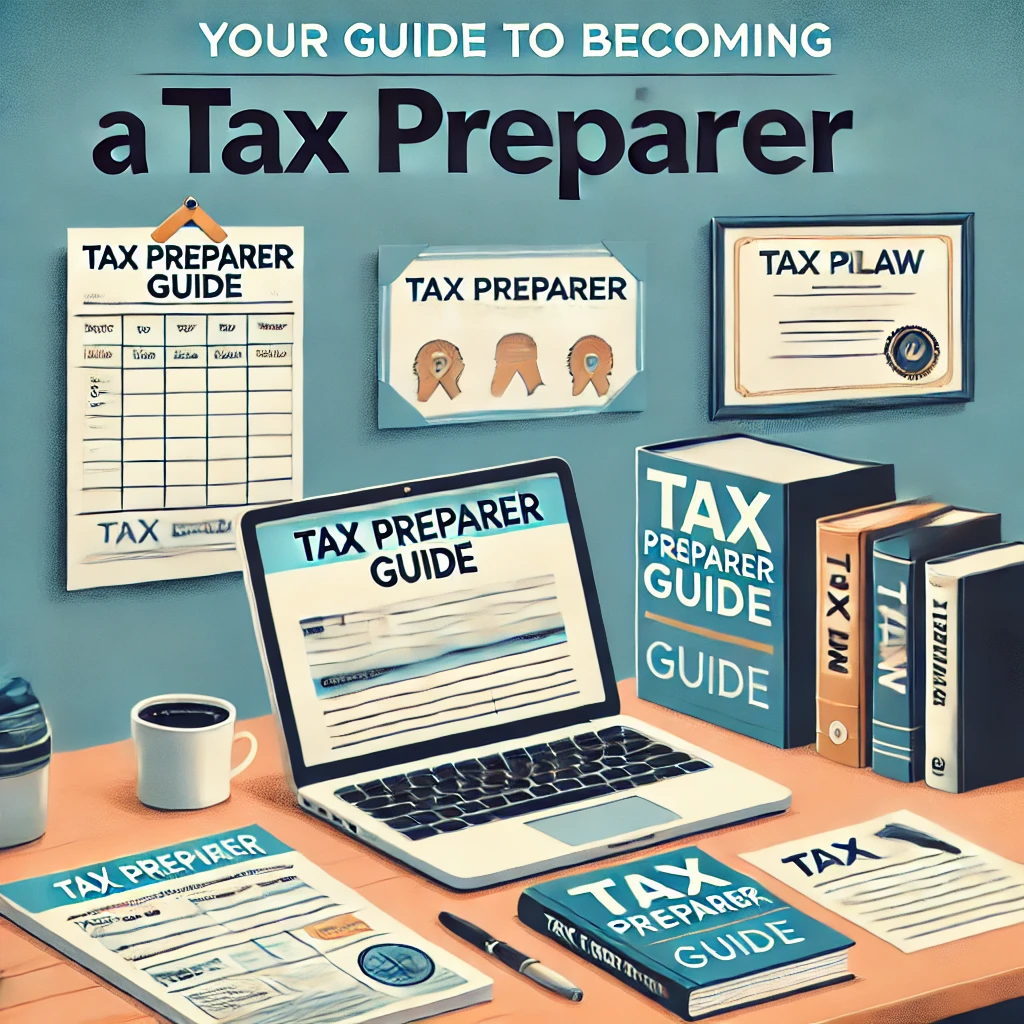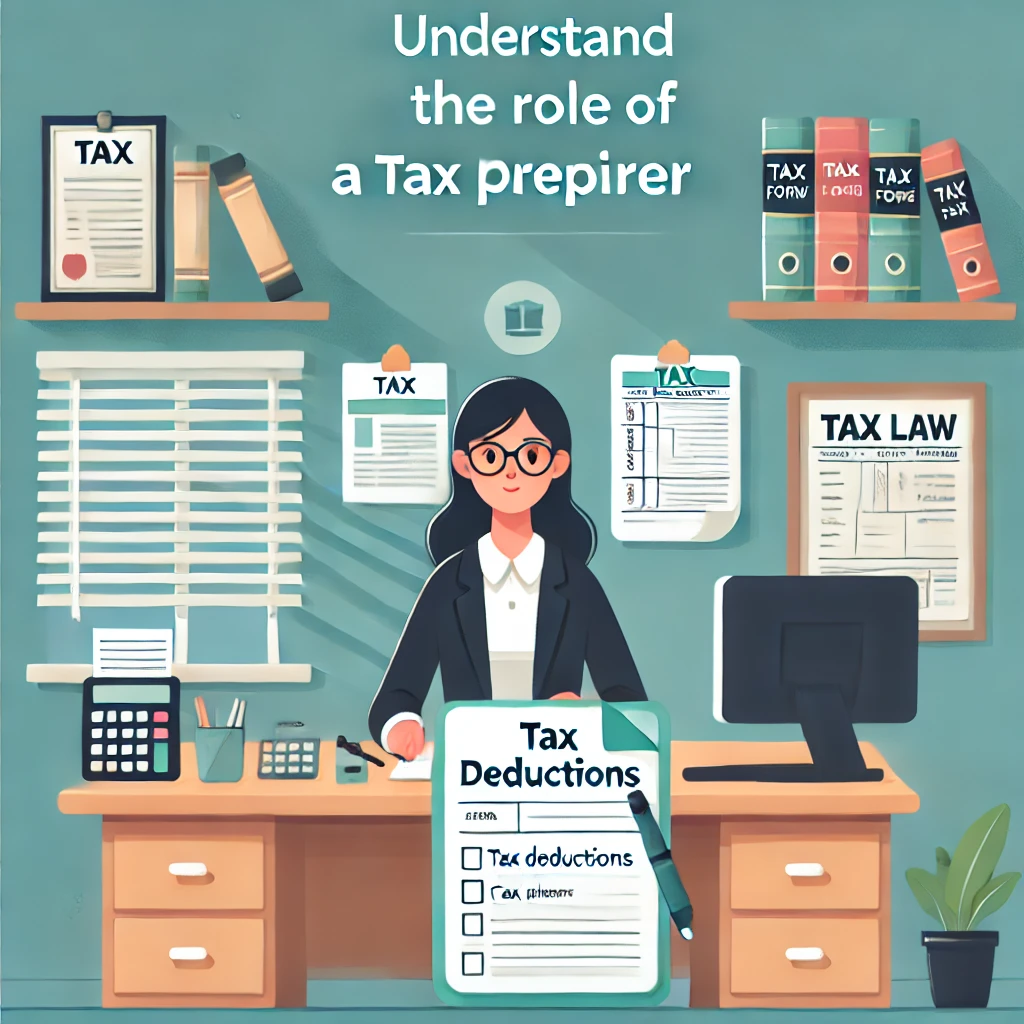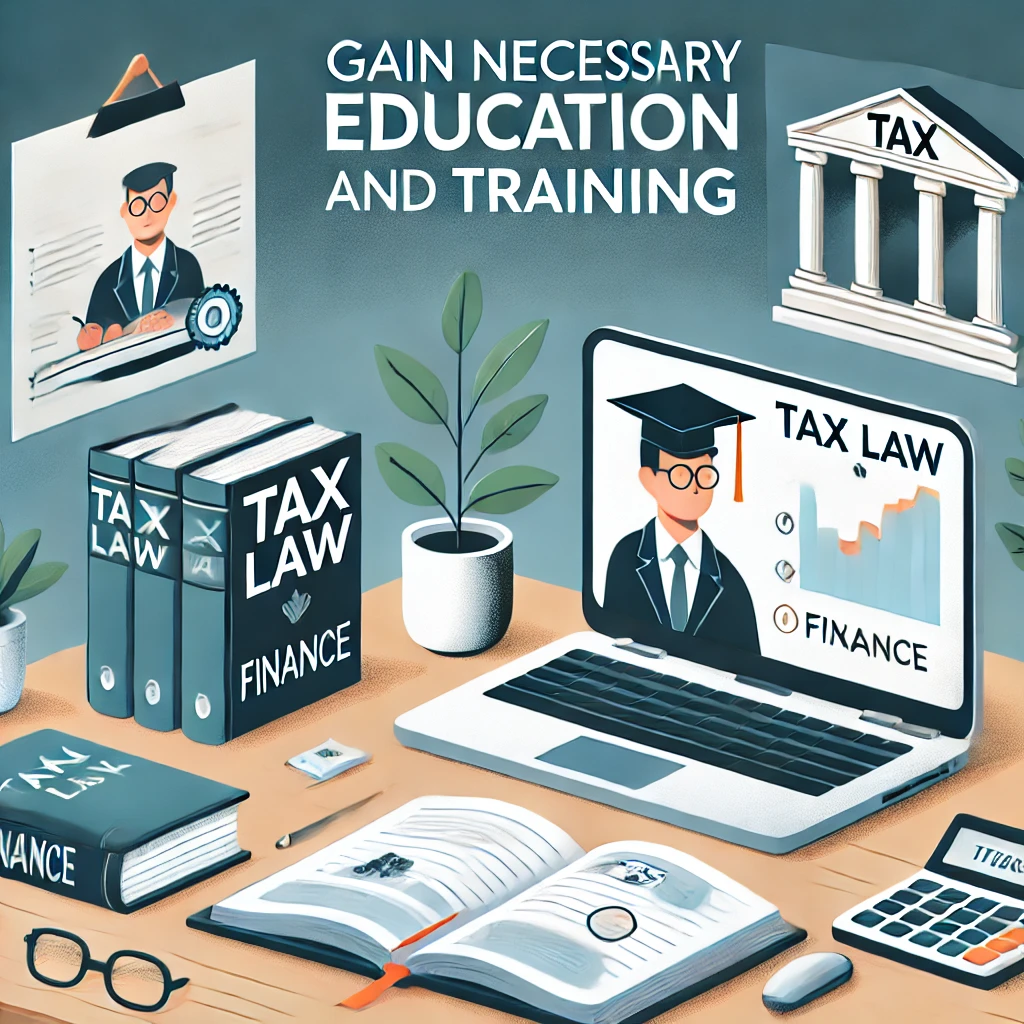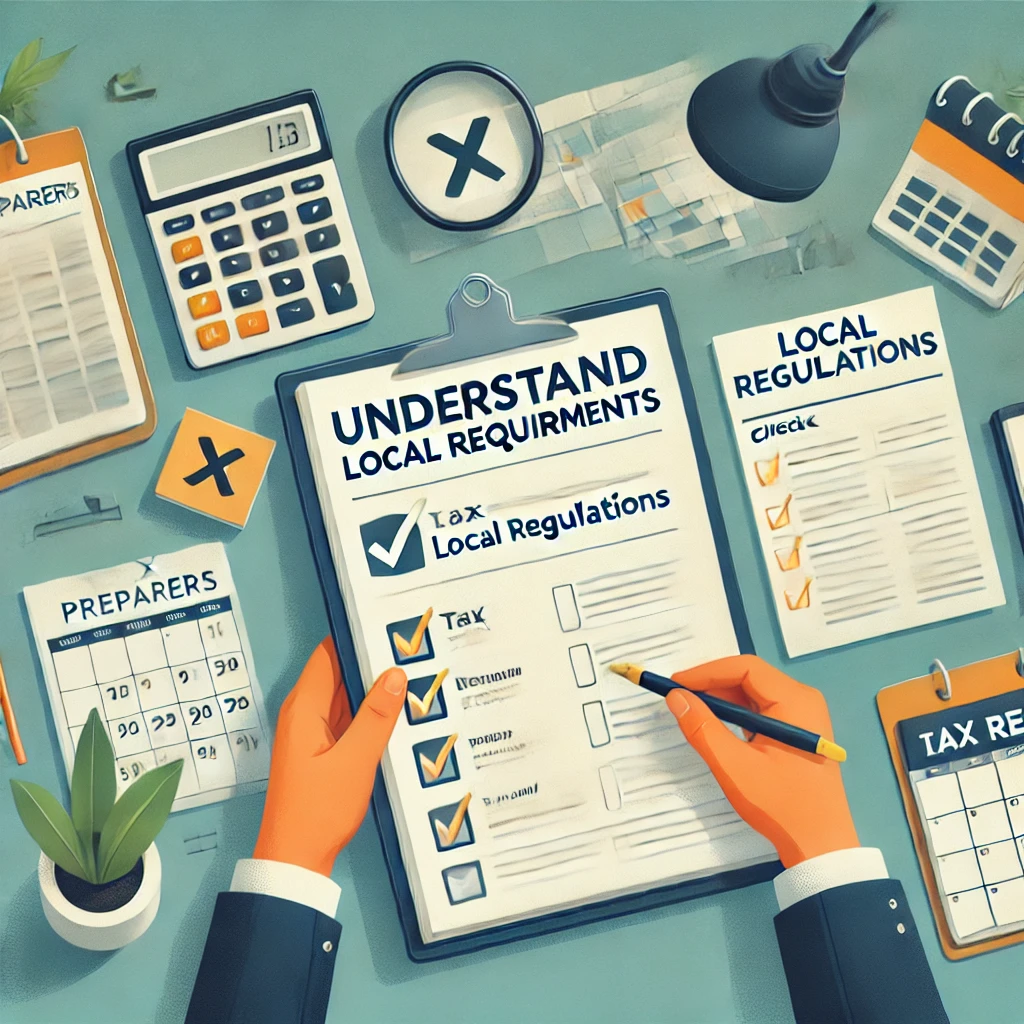
Set Appointment

Tax preparation is a promising career path that offers both flexibility and the opportunity to help individuals and businesses manage their financial responsibilities. As a tax preparer, your role involves ensuring compliance with tax laws, maximizing refunds for clients, and providing guidance on various tax-related issues. Here’s an in-depth guide on how to become a tax preparer, tailored for those interested in pursuing this career at a professional level.

The first step in becoming a tax preparer is gaining a comprehensive understanding of the role. A tax preparer assists individuals and businesses in accurately filing their tax returns. This includes gathering financial information, verifying income, identifying deductions and credits, and submitting tax documents within the required deadlines.

Beyond basic tax return preparation, tax preparers may also assist clients in responding to audits or tax discrepancies, which requires a solid grasp of tax regulations and the ability to navigate complex situations. Staying updated with current tax laws is essential, as changes can significantly impact how returns are filed and calculated.
To embark on a career in tax preparation, you need to meet some basic qualifications. Generally, a high school diploma or equivalent is the minimum educational requirement. You must also be legally authorized to work in your country, and most employers require a clean background check, as you will be handling sensitive financial information.
Clients highly value trust and integrity, making a strong ethical background crucial. Although these basic requirements make the career accessible, additional training and experience will further enhance your employability and credibility in the field.

While formal education such as a college degree in accounting or finance is not always required, it can be extremely beneficial. Many aspiring tax preparers take specialized courses in tax law, filing procedures, and income tax deductions to understand the intricacies of the field. Community colleges, online educational platforms, and professional organizations offer programs that cover both basic and advanced tax topics.
For those seeking a deeper understanding, pursuing a bachelor’s degree in accounting or a related field can provide a solid foundation and open doors to more advanced roles in tax consulting. Continuous learning is essential in this career due to frequent changes in tax regulations and policies.
Successful tax preparers possess a variety of key skills that make them effective in their role. Strong numerical and analytical skills are essential for accurately calculating taxes, identifying deductions, and ensuring compliance with tax regulations. Attention to detail is critical, as even small mistakes can lead to significant problems for clients.
In addition to technical skills, interpersonal and communication skills are important. You must be able to explain complex tax concepts in simple terms to clients who may not be familiar with financial jargon. Problem-solving skills are also crucial, as each client’s situation is unique, requiring you to analyze financial information and identify the most advantageous strategies for minimizing tax liability.
To formally become a tax preparer, you must obtain a Preparer Tax Identification Number (PTIN) from the IRS. This is a basic requirement for anyone preparing federal tax returns. Additionally, you may consider obtaining certifications to increase your credibility. The IRS Annual Filing Season Program (AFSP) is one such certification that can enhance your standing as a tax preparer.
For those looking to advance further, becoming an Enrolled Agent (EA) is highly recommended. An EA is a federally authorized tax professional who can represent clients before the IRS. This designation is recognized nationwide and demonstrates an in-depth understanding of tax codes, making it an attractive credential for both clients and employers. Certifications not only demonstrate your expertise but also significantly enhance your earning potential and career opportunities.
Practical experience is essential for building confidence and competence as a tax preparer. Consider internships or entry-level positions at accounting firms, tax services companies, or financial institutions to gain exposure to real-world tax preparation scenarios. Volunteering with organizations like the Volunteer Income Tax Assistance (VITA) program can also provide valuable experience, especially in working with low-income individuals and families.
This type of hands-on experience helps you understand the different challenges that arise during tax preparation and allows you to apply theoretical knowledge in a practical setting, enhancing your ability to handle various client needs effectively.
Tax preparer regulations differ by state or country, so it’s important to understand the specific requirements where you intend to practice. Some states may require you to complete additional training, pass specific exams, or register with a state tax authority. Being aware of and compliant with these requirements is crucial for avoiding legal complications and ensuring that you provide a professional level of service.

In some jurisdictions, you may also need to complete continuing education to maintain your license, which emphasizes the importance of staying informed about local laws and regulations. Understanding these nuances early on will help you establish a solid and compliant practice.
Building a client base is key to establishing a successful tax preparation career. Marketing your services effectively will help you attract and retain clients. Start by creating a professional website that outlines your services, qualifications, and client testimonials. Networking is another powerful tool—attending local events, joining professional organizations, and building relationships with other financial professionals can help you generate referrals.
Leveraging social media platforms and online marketing strategies can also expand your reach. Providing exceptional service is critical, as satisfied clients are more likely to recommend you to others. Offering incentives like first-time discounts or referral bonuses can also help you grow your client base.
Tax laws are dynamic, with frequent changes that can impact how returns are prepared and filed. Therefore, continuing education is a critical component of being an effective tax preparer. Staying up-to-date through workshops, seminars, and online courses ensures that you remain knowledgeable about the latest tax laws, industry practices, and software updates.
Professional organizations like the National Association of Tax Professionals (NATP) or the National Society of Accountants (NSA) provide resources for continuing education. Participating in these programs not only helps you stay current but also enhances your credibility with clients, positioning you as an expert who is committed to providing accurate and high-quality service.
After gaining sufficient experience, you may consider starting your own tax preparation business. This path provides significant flexibility and the potential for higher income, but it also requires careful planning. You will need to obtain any required business licenses, decide on a workspace (whether home-based or a rented office), and develop a pricing structure that is competitive yet reflective of your expertise.
Investing in professional tax preparation software and establishing a reliable record-keeping system are also crucial steps. Effective marketing will be essential to attracting clients, so consider developing a business plan that includes both digital and traditional marketing approaches. Running your own business can be challenging, but it provides the satisfaction of autonomy and the opportunity for growth based on your efforts and skillset.
Becoming a tax preparer involves a series of well-defined steps, including obtaining the necessary education, gaining practical experience, acquiring certifications, and building a client base. With dedication and a commitment to continuous learning, you can establish a successful career that not only provides a steady income but also helps others manage their financial well-being.
Whether you decide to work for an established company or start your own practice, the demand for skilled tax preparers remains steady, offering a stable and rewarding career path. Your expertise will not only make tax season less stressful for your clients but will also empower them to make informed financial decisions.
Certified Public Accountants Offering Comprehensive Tax Filing, Planning, and Financial Consulting